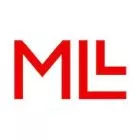In what is thought to be a first Swiss ruling of its kind, the Geneva Court of Justice recently ordered a major US based registrar of ".com" domain names to place on registry-hold multiple ".com" domain names selling counterfeit goods (ACJC/335/2015). This innovative precedent gives Swiss trademark owners a new venue to block third parties' websites infringing their trademark rights worldwide.
The Claimant, a company active in the luxury goods industry, requested from the Geneva Court interim measures against six domain name holders based on an infringement of the Swiss Trademark Protection Act. All of the domain holders were individuals having a false address in China and operating websites that reproduced the Claimant's verbal trademark in their domain names and offered items for sale openly described as replicas of the Claimant's products. While dismissing the request for ex parte measures, the Court granted the interim measures and ordered the US based registrar to place the ".com" domain names on hold.
The Court first noted that the websites were accessible in Switzerland, amongst others in Geneva, and offered the possibility for customers to pay in Swiss Francs and to have products delivered into Switzerland. Thus the Court accepted jurisdiction based on Article 109 para. 2 of the Swiss Private International Law Act ("PIL"). As the request was based on the violation of an intellectual property right in Switzerland, Swiss law was also applicable as lex loci protectionnis (Art. 110 para. 1 PIL).
Under Article 55 para. 1 let. b of the Trademark Act, a trademark owner may request the Court to remedy an existing infringement. To obtain interim measures on that basis one must demonstrate the following conditions: (i) likelihood that a right to which the Claimant is entitled has been or may be violated in the near future and, (ii) such violation threatens to cause harm that is not easily reparable and, (iii) the situation is urgent and, (iv) the requested measure is proportionate.
Article 13 para. 2 let. b of the Trademark Act grants trademark owners the right to forbid third parties to use, amongst others, an identical or similar sign (in the latter case if it results in a risk of confusion) to offer identical goods. In the case at hand, there was a clear-cut violation of the Claimant's trademark rights, since the Defendants were offering for sale fake items advertised as such and bearing the trademarks of the Claimant. Each domain name was also composed of the trademarks of the Claimant, combined with descriptive words such as cheaptrademarkbracelet. com or trademarkbraceletreplica.com. The Claimant's trademarks were also reproduced on the contentious websites.
The Court then found the condition of urgency to be fulfilled. It also considered that a not easily reparable harm was probably caused to the Claimant. For the Court, it was likely that regular sales occurred in Switzerland and that in view of the difficulties of identifying the domain name holders, who had registered using fake addresses, the Claimant would not be able to obtain indemnification, and that its damage would continue to increase if the measure requested was not granted. The key issue in this case was to demonstrate that the requested measure to block worldwide access to websites was proportionate. As a general rule, the Claimant would have had the impossible task of demonstrating the infringement of its trademark rights not only in Switzerland but also in each and every jurisdiction where the websites were accessible; the Defendants could also have argued that the Claimant had no registered trademark in some jurisdictions. The Court however bypassed that obstacle, noting that the Defendants neither attended the hearing nor argued that blocking the domain names would prevent them from achieving sales in other jurisdiction where the Claimant's trademarks were not protected as such.
Issuing and enforcing an injunction against a company having its registered seat abroad was another obstacle that is usually extremely difficult to overcome in Switzerland. For that reason, the Claimant had first requested the order against the Swiss subsidiary of the US based registrar. In the course of the proceedings, the US based registrar informed the Court however that it accepted that it should replace its subsidiary as a third party within the proceedings and that it would enforce any injunction issued by the Swiss Court ordering it to place the domain names on hold or to transfer such domain names to the Claimant.
The Claimant was given 60 days to bring an action on the merits, which is currently pending. Therefore, it remains to be seen whether the blocking of the domain names and their eventual transfer to the Claimant will be granted on the merits.
Comment
This decision is a welcome one for trademark owners, as it makes Switzerland a new possible venue to block domain names infringing trademark rights relatively quickly on a worldwide basis. When requesting ex parte or interim measures, one should particularly ensure that solid legal arguments are being presented with regard to the proportionality of the requested measures and seek agreement of the foreign based registrar with which the domain names are registered.
The content of this article is intended to provide a general guide to the subject matter. Specialist advice should be sought about your specific circumstances.


